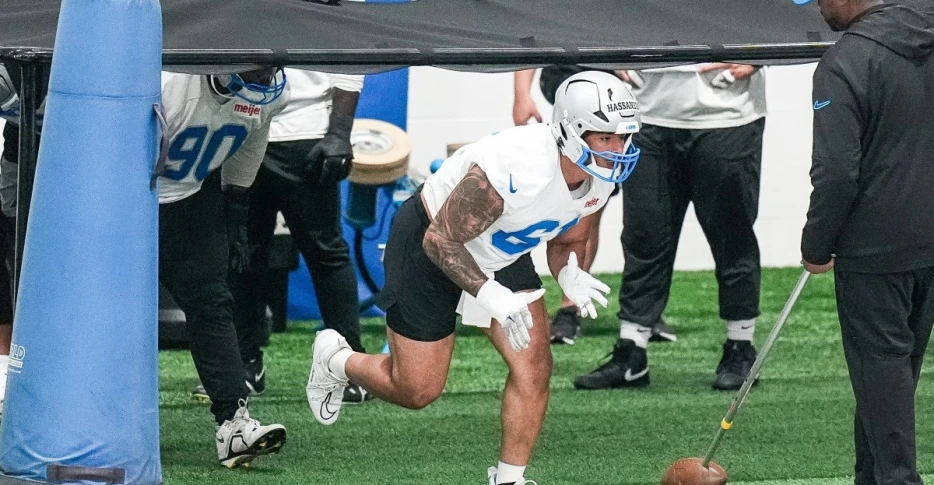
 Pride of Detroit
Pride of Detroit
During the Detroit Lions’ roster cutdowns, the team made a curious move, waiving sixth-round rookie defensive end Ahmed Hassanein with an injury settlement. Hassanein suffered a pectoral injury in the preseason, and if the Lions wanted to keep Hassanein for development, the move was a minor risk. The Boise State defender was placed on waivers, and even though it is extremely rare for a team to put in a claim for an injured player, all it takes is one team. Detroit could have simply placed Hassanein on injured reserve with a designation to return, thereby avoiding all risk. So, naturally, there were some questions as to whether the Lions actually still wanted Hassanein.
On Thursday, Lions general manager Brad Holmes put those questions to bed.
“Bottom line, he’s going to be a Detroit Lion. He’s going to be back on the football field playing this year,” Holmes said.
Hassanein ultimately cleared waivers and is now technically a free agent. However, Holmes’ comments suggest there is essentially a handshake deal between the two to return to Detroit once healthy. By NFL rules, the Lions cannot re-sign Hassanein until the length of the agreed-upon injury settlement (currently unknown) plus an additional three weeks.
So why did the Lions go this route instead of just placing him on injured reserve?
“What we wanted to do is what is going to be the best path for him to get him back to the practice field when he’s healthy, and the injury settlement was the way to go,” Holmes said. “Especially (with) him specifically, where he was at in his football career.”
While that doesn’t directly answer the question as to why they didn’t put him on injured reserve, they seem to think it was the best route for Hassanein’s health and development. It’s also possible Detroit simply didn’t want to use one of the eight IR-to-return designations a team gets during the regular season.
The bottom line is that Hassanein will be back with the Lions. And it sounds like his injury rehab is going well.
“There’s a good chance that he might get healthy before then [the end of the injury settlement] within those weeks,” Holmes said.